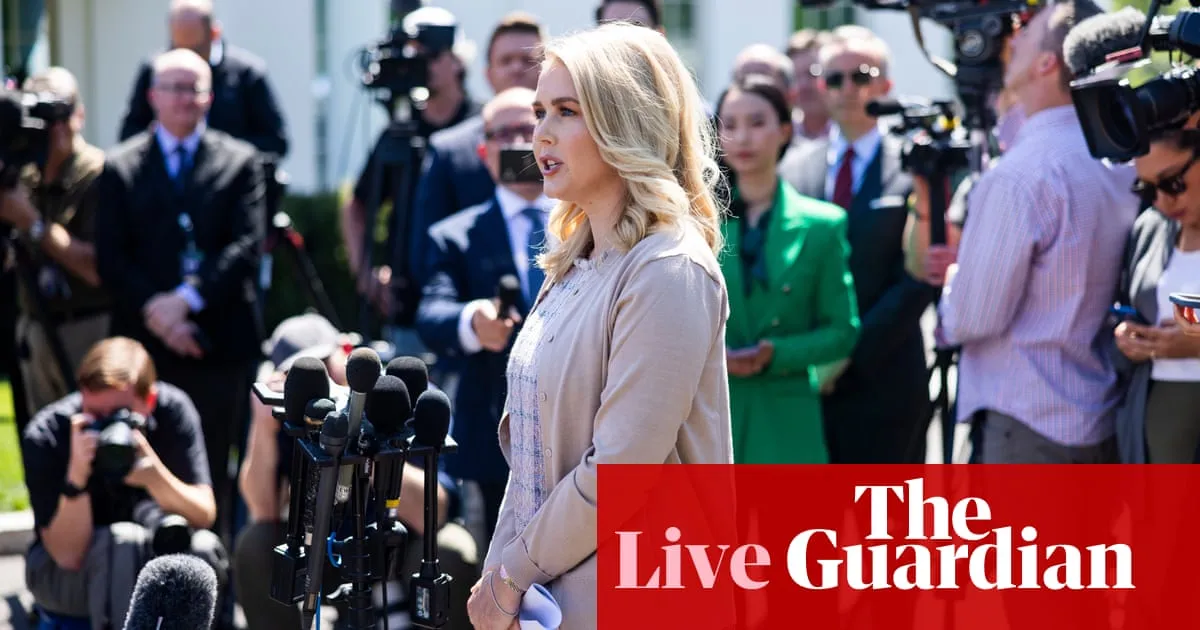
Former President Donald Trump has voiced his frustration regarding the ongoing peace talks aimed at ending the war in Ukraine. According to White House spokesperson Karoline Leavitt, Trump believes that Ukrainian President Volodymyr Zelenskyy is "moving in the wrong direction" concerning the negotiations. Leavitt stated, "The president’s frustrated. His patience is running very thin. He wants to do what’s right for the world. He wants to see peace. He wants to see the killing stop, but you need both sides of the war willing to do that. And unfortunately, President Zelenskyy seems to be moving in the wrong direction."
In a recent statement, Trump accused Zelenskyy of jeopardizing what he characterized as an imminent peace deal to resolve the ongoing conflict in Ukraine. Trump indicated that discussions have been taking place mainly between Washington and Moscow, suggesting that a deal could soon be reached. Vice President JD Vance also mentioned that the proposed agreement would likely involve freezing the conflict along current frontlines, emphasizing the need for mutual territorial concessions from both sides.
Despite these claims, Zelenskyy has firmly stated that Ukraine will not accept the notion of recognizing Crimea as Russian territory. This issue has emerged as one of the most contentious components of the proposed peace agreement, leading to further tensions between the two leaders. Trump criticized Zelenskyy's stance as "very harmful to the peace negotiations with Russia," indicating that this position complicates the chances for a successful resolution.
In a contrasting development, stock markets around the world responded positively to Trump’s recent remarks about China. Trump hinted at a potential reduction of tariffs on Chinese goods, stating that he has "no intention" of removing Jerome Powell, the Chair of the US central bank. These comments led to a significant rally in global markets, with the Dow Jones gaining over 800 points and the Nasdaq Composite rising by more than 3%.
US Treasury Secretary Scott Bessent echoed a more conciliatory tone regarding trade with China, suggesting that current high tariffs are unsustainable. He stated that the US and China must collaborate to rebalance their economic relationship, signaling a potential easing of tensions in the ongoing trade war.
Meanwhile, the Trump administration faces legal challenges on multiple fronts. A federal court has accused the administration of acting in "bad faith" concerning the case of Kilmar Ábrego García, who was deported to El Salvador despite prior protections against deportation. Judge Paula Xinis has mandated the administration provide details regarding their actions in this case, highlighting ongoing tensions between the judiciary and the executive branch.
In political news, Illinois Senator Dick Durbin announced his decision to retire after 44 years in Congress, stating that it is time to "pass the torch." As the second-highest-ranking Democrat in the Senate, Durbin's departure marks a significant shift in the political landscape. He expressed gratitude for his time in office while emphasizing the importance of continuing to fight for democracy and the future of the nation.
These developments illustrate the complex interplay of domestic and international issues facing the Trump administration, with implications for both peace negotiations in Ukraine and ongoing challenges at home.